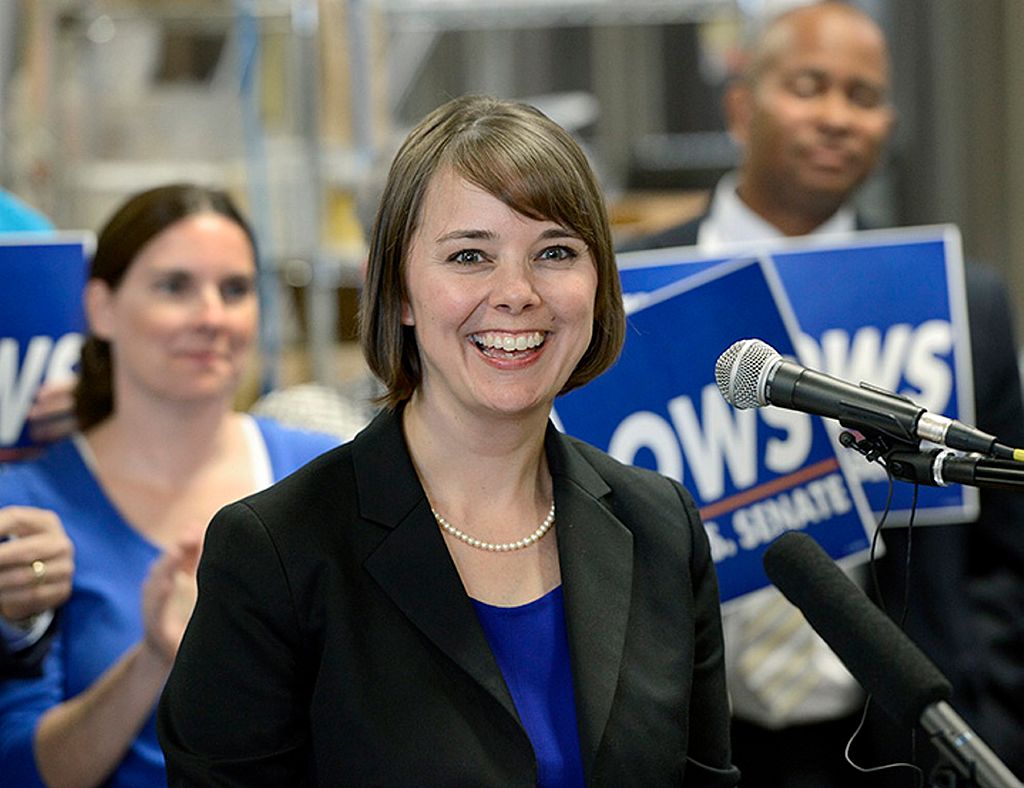To call Secretary Bellows unbiased goes beyond parody.
Maine Democrat Secretary of State Shenna Bellows unilaterally voted former President Donald Trump off the state’s presidential primary ballots Thursday, December 28. By her own admission, no other secretary of state had ever issued such a ruling based on their own interpretation of a constitutional issue before. We spoke with Liberty Nation Legal Affairs Editor Scott D. Cosenza to get a better understanding of this novel situation.
James Fite: Secretary Bellows suspended the effects of her ruling until an actual court weighs in on Trump’s appeal – which he was given five days to file. What purpose does this ruling serve if she hasn’t even had it take effect yet?
 Scott D. Cosenza: Your question reminds us that this is no court case but a decision by a politician from Trump’s opposition party. The cynical view is that the ruling secures Bellows’ name in the national conversation and will accelerate her political fundraising like pouring gas on a fire. Perhaps she will go after Susan Collins again in another run on the Democrat ticket for US Senator from Maine?
Scott D. Cosenza: Your question reminds us that this is no court case but a decision by a politician from Trump’s opposition party. The cynical view is that the ruling secures Bellows’ name in the national conversation and will accelerate her political fundraising like pouring gas on a fire. Perhaps she will go after Susan Collins again in another run on the Democrat ticket for US Senator from Maine?
More charitably, and if we take Secretary Bellows at her word, she was bound by law and duty to issue a ruling on the challenges to Donald Trump’s nomination petition. Then, she exercised her discretion with such a novel application of the law by suspending the decision in anticipation of the appeal. That last part, at least, is good judging.
JF: Bellows makes the point numerous times that the rules she’s bound by (the Administrative Procedure Act, or APA) allow her to set all the deadlines and determine what gets entered as evidence and what doesn’t. She chose to base her hearing on a highly partisan report from the Democrat-led House committee that ran the second impeachment of Trump back at the end of his presidency. When the appeal is examined, how likely is the court to follow this same path?
SDC: The Secretary goes out of her way to discuss how few rights the candidate has in the process. It’s a rather staggering amount of power. A Secretary of State who consciously or unconsciously wished to punish the leading candidate from another party might be able to do so even though they weren’t really a traitor or insurrectionist. I suspect the appellate courts will examine her process and find it wanting. And even if they don’t, they will reverse her finding that Trump has committed insurrection by, for instance, not taking some action to prevent it, as Bellows ruled.
JF: Trump said Bellows should recuse herself because she’s biased – and, as LN’s Mark Angelides recently pointed out, her anti-Trump record is well established – but she assesses her bias and declares it non-existent. Is it normal in accusations of bias for the accused official’s own opinion on the matter to be trusted? If she is biased against Trump, why would she admit (or perhaps even realize) it?

(Photo by John Patriquin/Portland Press Herald via Getty Images)
SDC: The answer to your question is that they wouldn’t if they were doing so intentionally and couldn’t if the bias was not conscious. And yet, that doesn’t address the fact that you don’t need a law degree or a judicial robe to know this politician, who opposed Trump’s elections and who ran statewide as a Democrat for federal office, is as biased as you can get. It’s beyond parody. Bellows wrote she would “preside over this matter impartially and without bias. My decision is based exclusively on the record before me, and it has in no way been influenced by my political affiliation or personal views about the events of January 6th, 2021.”
JF: She says this is the first time a Secretary of State has decided that a candidate participated in an insurrection and removed said candidate from the ballot. Are other states likely to follow suit?
SDC: The last time I checked, there were challenges to Trump’s ballot access on these grounds filed in at least 14 states. It looks like next up with a decision will likely be Oregon, whose state supreme court is expected to issue a ruling soon. The arguments have been submitted, and all that’s left is for the seven-member court, all of whom were appointed by Democrat governors, to rule on the case.
The New York Times, citing a “person familiar with the matter,” said Trump would file a Supreme Court challenge to the Colorado decision “as soon as Tuesday,” January 2. A decision on the merits of the 14th Amendment-based challenge in Colorado will apply to all the states with these cases.

